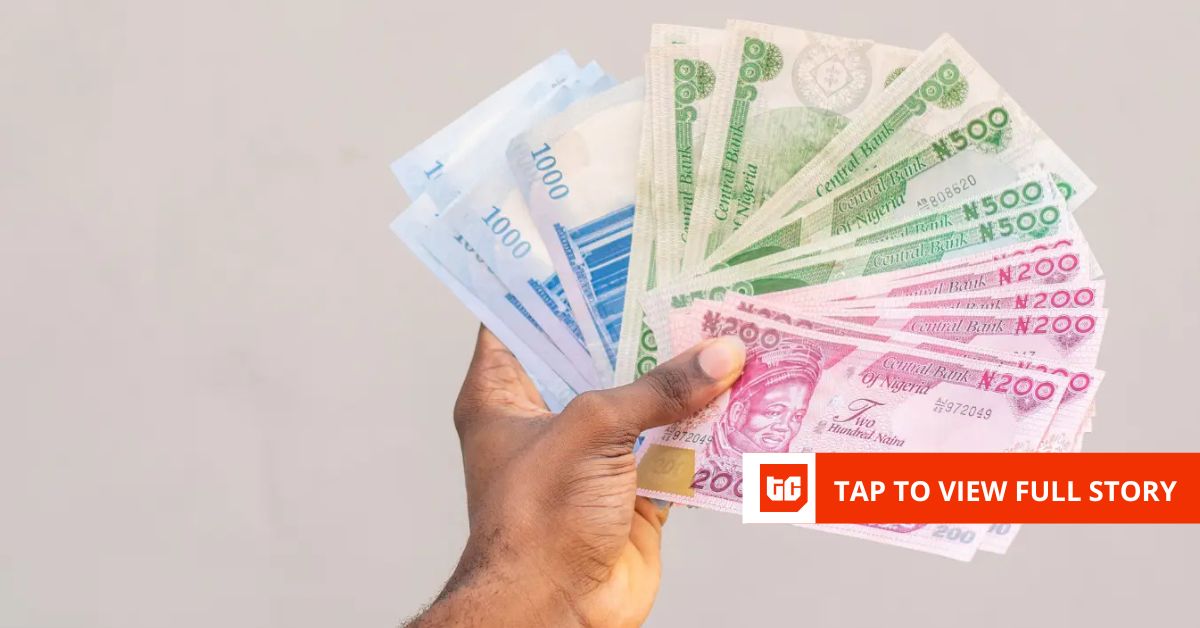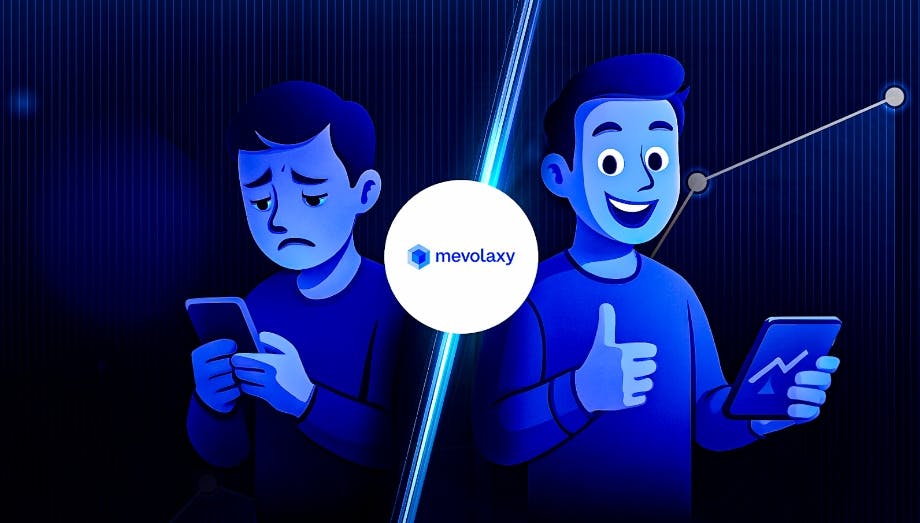When Adekunle Ogunleye, a secondary school chemistry teacher, opened WhatsApp one evening in late 2024, he didn’t expect to find a threatening message about a friend’s unpaid loan.
“It was not a nice message, and that shouldn’t be written about anyone, regardless of the situation,” he recalled. “What shocked me more was how they even got my number.”
Stories like Ogunleye’s have tainted Nigeria’s $2.1 billion digital lending industry, valued at an estimated $2.1 billion. You can hardly scroll through five YouTube Shorts without seeing a loan app ad. The number of approved digital lenders has surged by 166.47% to 461 in August 2025 from 173 in April 2023, according to the Federal Competition and Consumer Protection Commission (FCCPC).
These lenders are offering credit to people that traditional banks have long overlooked. But they are quickly discovering why banks have always been cautious about retail lending: defaults.
In 2023, the CBN linked the boom in consumer credit, composed of personal and retail loans, to the rise of fintech platforms. As of January 2025, personal loans had fallen 37.4% to ₦2.39 trillion, while retail loans jumped 92.2% to ₦1.73 trillion, reflecting a surge in borrowing by small businesses battling inflation and rising costs.
For many Nigerians battling economic hardship and inflation, 22.22% in June 2025, retail lenders are often the fastest option for survival cash.
“There has been a reduction in disposable income, prompting a lot of people to use our services,” said Gbemi Adelekan, president of the Money Lenders Association (MLA). “People are turning to moneylenders because our requirements are not as stringent as traditional banks. We are faster and more flexible.”
The default problem
This speed, however, comes at a price. The CBN’s Q2 2025 Credit Condition Survey reported higher default rates for secured and unsecured lending. The IMF, in a recent report on Nigeria, warned of how “high NPLs in several NBFIs, new mortgage and consumer lending schemes, and fast-growing fintech and crypto sectors pose potential risks to financial stability.”
“People are borrowing from different lenders without the intention of paying back,” Adenekan said. “ They do not have the income to pay.”
Adedeji Olowe, founder and CEO of Lendsqr, a Nigerian lending software startup, puts it bluntly: “If you lend money to 100 people, 97 people must pay you back. The interest rates you make from those 97 people must be enough to cover and pay back the capital. So you see, lenders are literally walking on eggshells.”
While digital lenders have historically factored high defaults into their interest rates, charging premium rates to cover for bad loans, they are doubling down on improved technology, credit histories, phone data, and background checks.
The role of credit bureaus
For operators like Carbon, credit histories determine how much a person can borrow. Credit scores factor a borrower’s SMARTScore, payment history, credit utilisation ratio, and outstanding debts, according to Credit Registry.
These help lenders avoid bad borrowers. “We track credit histories with the credit bureau to assess credibility,” said Adelekan. However, he pointed out that these histories are updated monthly, not in real time, leaving lenders exposed.
“You can still see how many lenders someone has borrowed from. If someone has been to five or six lenders before you — that is a red flag,” he added. This, he said, leads to 30–40% bounce rates in applications.
Lendsqr’s Olowe noted that the difference between lending in Nigeria and developed markets like the US lies in how effective the credit score system is. “You won’t be able to get money from someone else again. It can literally destroy you, because nobody will be able to give you money,” he said.
In the US, lenders report defaulters to credit bureaus, but Nigerian lenders are still playing catch-up. Nigeria has three credit bureaus: CRC Credit Bureau Limited, CreditRegistry Nigeria, and FirstCentral Credit Bureau, all fully licenced by the CBN.
Signing up for each costs about ₦250,000. To get a full picture, a lender must query at least two of the three because reporting can be inconsistent.
While lenders are obligated to report defaults, they still have to pay to access this data. Search fees range from ₦100 per applicant for basic checks to ₦1,500 for in-depth profiles. For 1,000 applicants, that is ₦300,000 to ₦4.5 million across the three registries. These costs are eventually passed on to borrowers, pushing up interest rates.
This screening usually only makes about 30 – 40% of applicants eligible for loans, according to Olowe, with banks required to be signed up with at least two. “But many lenders do not even report to any credit bureau at all,” he said.
“The only reason credit works well in developed countries is not because of algorithms, but because of better reporting,” Olowe argued. “If you default, your name goes everywhere. In Nigeria, it might go to one bureau, or nowhere at all.”
AI and new tools
While Lendsqr is experimenting with AI models that analyse borrowers’ voices and faces to assess creditworthiness, its founder notes that results have not been perfect.
However, the lending software startup is not giving up. It recently signed agreements with all three credit bureaus to make reporting and checking credit histories more seamless for its clients.
“Lenders who sign up with us don’t have to pay to find data. We help them check from one credit registry to another. We automate the process and confirm to cross all the Ts,” Olowe said. “Weekly automated reporting should go live soon, too.”
Other lenders are tightening their entry gates. Trade Lenda now restricts loans to users integrated into its system who meet stricter criteria. “We are still fine-tuning it, but the idea is to get quality leads of people who do not have the intention to default in the first place,” said CEO Adeshina Adewumi.
For lenders like Babatunde Akin-Moses, co-founder of Sycamore, improved digital identification systems are helping reduce default risks. “It is easier to track people now, and the laws are more credible and robust today,” he said.
In June, the Federal Government announced plans to link loans to the National Identification Number (NIN), making defaults traceable across banks, fintechs, and microfinance institutions.
“Your NIN will now anchor your credit profile,” said Uzoma Nwagba, managing director of the Nigerian Consumer Credit Corporation (CREDICORP), at the launch. Loan defaults, he warned, could soon affect everything from passport renewal to renting a house. “There will be no hiding place.”
Lendsqr’s Olowe believes open banking will be another game-changer, giving lenders secure access to banking statements and transaction histories. Direct debits are also helping, though some borrowers sidestep them by moving funds to wallets like Opay, PalmPay, or Moniepoint. “Direct debit is not getting to them, which continues to create ways for defaults to entrench,” he said.
Role of the FCCPC
The FCCPC regulates digital lenders under its 2022 guidelines. As of August 2025, fully approved lenders rose to 399 from 119 in April 2023. Conditional approvals dropped to 40 from 54, and 22 lenders operate with direct CBN licences.
Part of the sector’s appeal, Adelekan says, is lower start-up costs and easier licensing compared to microfinance banks. “It is not as rigid as getting a license for a microfinance bank or a finance company license from the CBN,” he said.
Beyond regulation, the FCCPC is battling to clean up the industry’s image, especially around aggressive recovery tactics. It has delisted 47 loan apps and placed 88 on a watchlist for violating ethical standards.
“We tell our members that while recovering, their money is important, they must never resort to unethical methods,” Adelekan said. “The FCCPC is doing a lot to clean up the industry.”
At the end of 2023, the commission announced plans for a stronger framework to curb defaults, though it has yet to materialise.
The stake of small businesses
Even as lenders tighten their terms, many of Nigeria’s nearly 40 million micro, small, and medium-sized enterprises (MSMEs), which generate the country’s average monthly revenue of ₦223,250 for small businesses, depend on short-term loans to keep operations running.
For Regxta, which serves rural and semi-urban areas, rising costs have forced it to shift more clients from the micro to the SME category, enabling them to access larger loans. “Customers need more financing due to rising costs,” said CEO Rukayat Kolawole-Bello. Since 2018, Regxta has lent ₦7 billion, with ₦3 billion disbursed since late 2023 alone.
Retail lending is a sticky business but vital for unlocking consumption and growth. In developed markets, banks take the lead, but in Nigeria, digital lenders are stepping up, reducing loan processing time to just a few taps on a smartphone, a convenience that not only transforms access to credit but also tests their ability to keep defaults in check.
Mark your calendars! Moonshot by is back in Lagos on October 15–16! Join Africa’s top founders, creatives & tech leaders for 2 days of keynotes, mixers & future-forward ideas. Early bird tickets now 20% off—don’t snooze! moonshot..com









